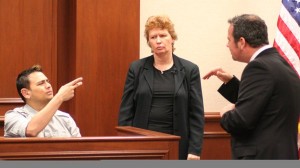Today I will talk about training opportunities & qualifications for deaf practitioners. In the UK, the National Occupational Standards on interpreting & translation #k=interpreting">https://www.ukstandards.org.uk/Pages/results.aspx?k=interpretting #k=interpreting.">https://www.ukstandards.org.uk/Pages/res... These standards determine what is in training (either in further or higher education) 1/x
The standards determine what is in qualification specifications designed by awarding bodies: @SignatureDeaf have this qualification: https://www.signature.org.uk/docs/qualification_specifications2020-21/INTRA6_FINAL_16%20December_2019.pdf">https://www.signature.org.uk/docs/qual... 2/x
There used to be separate qualifications for deaf practitioners: one for sign language interpreting (between two sign languages) & another for sign language translation (between English & BSL). Hearing practitioners (BSL & English had a different qualification) 3/x
The work done by deaf practitioners is mostly & #39;relay& #39; or & #39;intralingual& #39; interpreting (working between varieties of the same sign language, for deaf people mostly in community settings, such as immigrant communities, deaf people with mental health issues, young deaf people etc 4/x
Previously there was no qualification for this kind of work & so most of the deaf practitioner workforce had translation qualifications & to a lesser extent, interpreter qualification. This enabled registration with @NRCPD but not those who did & #39;relay& #39; or & #39;intralingual& #39; work 5/x
The new qualification - hooray - allows deaf relay interpreters to become qualified & to receive their yellow card as registered sign language interpreters (RSLI). 6/x
The new qualification has 4 streams: 1. Spoken <> signed interpreting; 2. Signed <> signed interpreting; 3. Steam 3 BSL <> BSL Relay interpreting & 4. Stream 4
Written <> signed translation. Wonderful. Hearing practitioners can do (1) & deaf practitioners can do (2) (3) & (4) 7/x
Written <> signed translation. Wonderful. Hearing practitioners can do (1) & deaf practitioners can do (2) (3) & (4) 7/x
The problem is: deaf practitioners do not just do one stream - e.g. I work as a BSL-ASL interpreter, a English-BSL translator & as a relay/intralingual interpreter. This regime means that I need to get three separate qualifications -- where hearing practitioners only need one 8/x
Members of @ASLIuk DIN are disappointed by this structural oppression of deaf practitioners: qualifications have not been tailored to be modular to take into account the variety of work by deaf practitioners & have been talking with @SignatureDeaf & @NRCPD to redress this 9/x
Hopefully this issue will be resolved soon. It highlights the importance of awarding bodies consulting widely with practitioners to take into account the wide variety of work done by practitioners in a rapidly evolving industry. 10/x
But training? There are only a very small handful of courses available for deaf practitioners. So between a larger number of qualifications & more limited training offerings for deaf practitioners it is harder for a deaf person to become qualified & registered. 11/x
DIN is hopeful that we can encourage better structured quals for deaf practitioners (that do not us to jump through more hoops than hearing colleagues) greater availability of training courses & above all better working conditions. Thanks for following this thread! 12/12

 Read on Twitter
Read on Twitter





